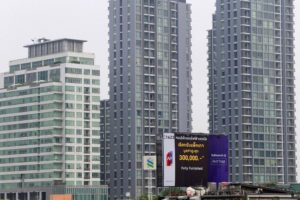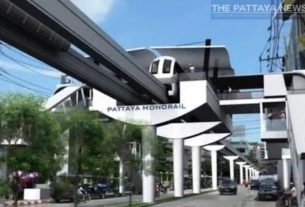
Thai Government agrees in principle proposal to allow foreigners to hold land ownership of one rai for residential purposes, feasibility study to follow
Thai Government puts brakes on proposals to increase foreign ownership quotas for condominiums and expand years of property leasehold rights for foreigners
Thai Government still wants to entice wealthy expats
The Centre for Economic Situation Administration (CESA) chaired by Prime Minister Prayut Chan-o-cha on Friday put the brakes on proposals to increase foreign ownership quotas for condominiums from 49% and expand property leasehold rights for foreigners from 30 years to 50 years.
But it agreed in principle on a proposal to allow foreigners to hold land ownership of one rai for residential purposes.
The Land Department has been tasked with studying the feasibility for two months, then making a proposal to CESA for reconsideration.
According to a source at Government House who requested anonymity, it was Interior Minister Anupong Paojinda who opposed the two proposals prepared by an ad hoc committee on new investment privileges for foreigners.
The committee was chaired by M.L. Chayotid Kridakorn, personal adviser to Deputy Prime Minister Supattanapong Punmeechaow.
At the meeting, the source said Gen Anupong argued the two issues are sensitive and the government would face a public backlash if it approves the proposals.
Mr Supattanapong said the government will continue the policy to lure wealthy foreign visitors to the country because it can generate income for Thailand in the long term.
As part of its investment promotion package to rehabilitate the economy, the government aims to draw four groups of rich foreign visitors — wealthy global citizens, wealthy pensioners, remote work professionals, and highly skilled professionals — with privileges including a long-term visa for up to 10 years and land and property ownership.
The government hopes to attract more than a million qualified people to Thailand over five years.
The state expects these foreigners to spend on average a million baht per person per year while staying and working here, generating about a trillion baht total the next five years.
According to Mr Supattanapong, the government expects to conduct a survey soon to evaluate whether these four groups of wealthy foreigners remain interested in a long stay in Thailand based on existing privileges.
On Jan 18, the cabinet approved two Interior Ministry regulations. One is for issuance of long-stay visas for 10 years or long-term resident visas to four wealthy groups of visitors, while the other allows foreigners to work in Thailand.
A survey conducted by M.L. Chayotid among investors previously found they were interested a long stay in Thailand after government promises of 10-year visas and work permits.
Source: https://www.bangkokpost.com/property/2251535/foreign-property-lures-are-rejected



